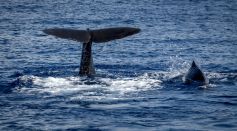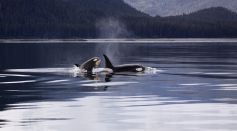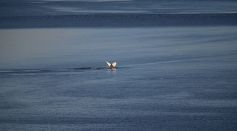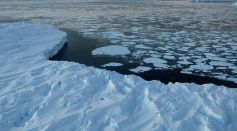Tags: Whales

Sperm Whales in the 19th Century Share Information With Each Other to Avoid Whalers
28 Trapped Whales in New Zealand, Refloated in An Attempt to Rescue Them

Post-Mortem Study Shows Numerous Population Threats to Orcas
Newly Discovered Whale Species in the Gulf Already Bordering Extinction
How Whales Help Take CO2 Out of the Atmosphere

Whales Finally Returning to Polar Regions 40 Years After Commercial Whaling Ended

Using AI To Save Endangered Killer Whales

Scientists Found Unknown Beaked Whale Off Remote Island in Mexico

After a Century, Blue Whales Return to South Georgia Island

Humpback Whale Tipped Over Kayakers, Almost Swallowing Them
Song Patterns Among Fin Whale Change Over Time, Surprising Scientists
Remora: The Secret Life of a Suckerfish Hitchhiking on a Whale

Coalition of Female Scientists Call for a Marine Protected Area in Antarctica
Around 270 Stranded Whales Continue to be Rescued in a Mass Beaching
Saving the Whales in Dublin's Dead Zoo is Not an Easy Task

6 Bottleneck Whales Dead in Largest Live Stranding in the History of Ireland

5 Strange Sounds No One Can Still Explain
An Unknown 15-Foot Creature Washed up on Merseyside, UK Beach
How Modern Whales Swim is Linked to the Skeleton of Extinct Dolphin
Whales’ Resting Period Dramatically Declines Even When Boats Are About 100M Away: New Study Urges New Watching Guidelines
Most Popular

Microplastics Are Everywhere — How Plastic Pollution Threatens Wildlife, Soil, and Water

How Scientists Use Radio Telescopes to Search for Alien Signals Across the Universe

How Climate Change Amplifies Natural Disasters: Extreme Weather and Global Warming Impact

Climate Change Effect on Wildlife: How Shifting Habitats Are Transforming Animal Migration Patterns




